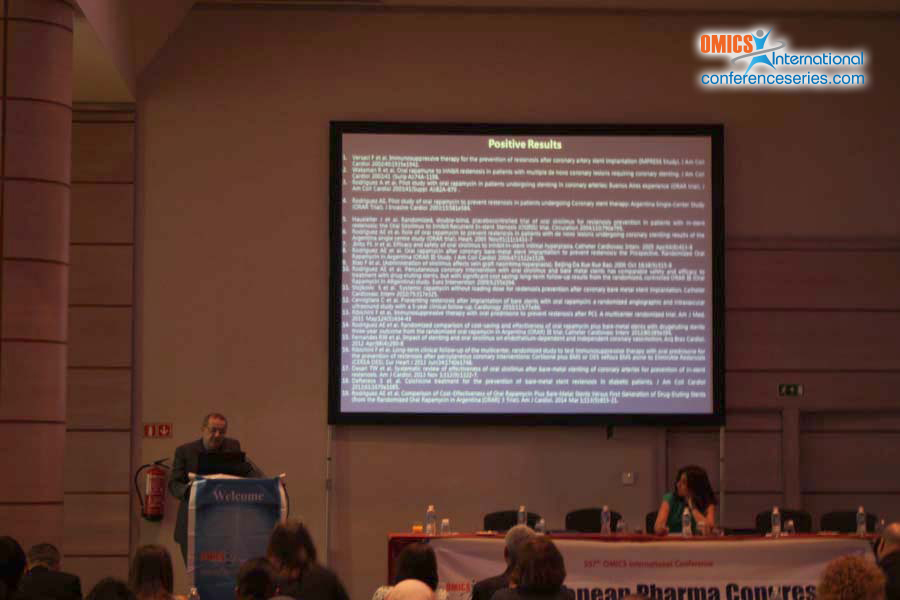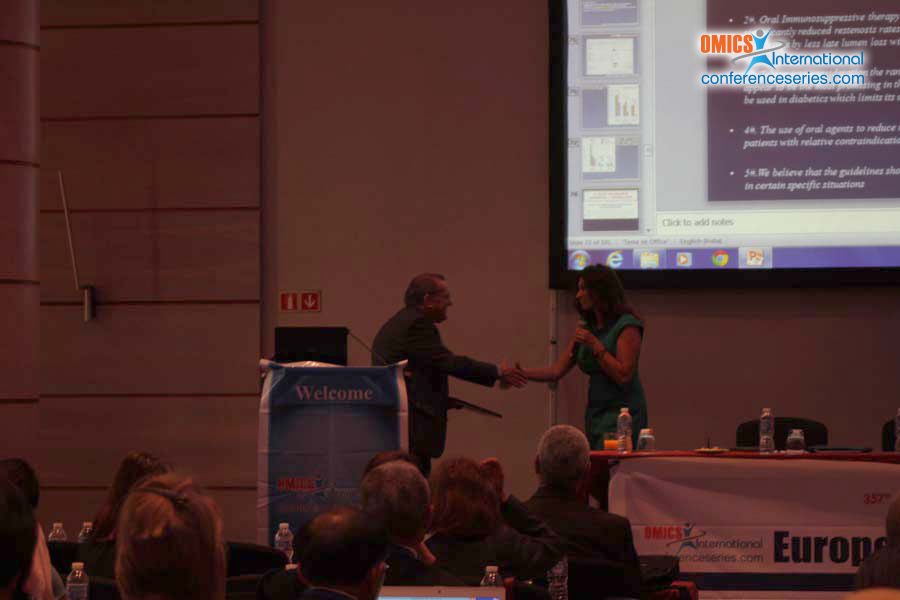
Alfredo E Rodriguez
Otamendi Hospital, Argentina
Title: Lessons learned from randomized clinical trials of oral immunosuppressive therapies in reduction of restenosis after bare metal stent implantation: Are enough evidence for class ii-a indication?
Biography
Biography: Alfredo E Rodriguez
Abstract
Coronary restenosis after Percutaneous Coronary Interventions (PCI) has been significantly reduced in the last decade after the introduction of Drug Eluting Stents (DES), clinically reproduced by a significant decrease of repeat revascularization procedures. However, in certain group of patients, this benefit did not translate to better clinical outcomes in the long run compared to previous Bare Metal Stents (BMS) implantation. Hard clinical endpoints, such as death, myocardial infarction or cerebrovascular accidents did not diminish as was expected, especially in the subgroup who couldn´t receive dual antiplatelet therapy for long time. While newer generations of DES and antiplatelet drugs developed, registries and Randomized Clinical Trials (RCT) with Oral Immunosuppressive Therapies (OIT) to prevent restenosis after BMS implantation demonstrated a significant improvement reducing restenosis and target vessel revascularization without increasing hard clinical end-points or serious adverse side effects. However, these investigator´s driven studies had limitations, mainly due to small sample size. Last year a meta-analysis of OIT, either with sirolimus or prednisone, was published and results were in accordance with previous data. At the same time an important RCT, Oral treatment with Rapamycin in Argentina (ORAR III), published 5 years follow-up data comparing 1st generation DES and showed promising results in favor of OIT. Actually, this strategy of OIT after BMS appears to be rational when patients had restrictions or contraindications for DES or if there are economic limitations in the health care system, and therefore it would be appropriate to include this approach as a Class IIA indication..


